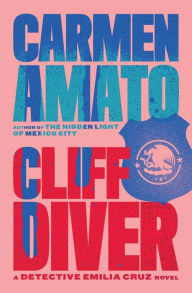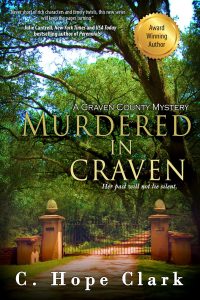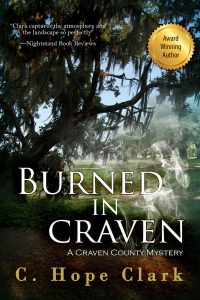Visiting Detective Emilia Cruz: “Hunt for the Missing”
The Law Enforcement landscape changes as societal needs evolve. Years ago, local police departments generally focused on car thefts, bank robberies, burglaries, the occasional drunk, domestic disputes, etc. These days, car and home break-ins are a very low priority, with drugs, human trafficking, and cyber crimes on the rise.
The increase in new crimes and more sophisticated criminals requires a level of training few departments have available, so conferences sometimes fill the gap. If the budget allows, ranking officers and detectives attend in order to discover what other people in the country (or our border countries) are doing to solve the issues causing the most harm.
That’s how I met Detective Emilia Cruz, a guest speaker at a recent conference in Virginia, not far from D.C. Her topic hit pretty close to home, since our north Jersey county, with its proximity to seaports and major highways, was also experiencing an uptick in missing women and girls. Combined with the Mexican and Central American citizens fleeing the drug cartel violence, coming with stories of horrors their families had faced, made for complex problems. I invite you to read Detective Emilia Cruz’ account:
Hunt for the Missing with Detective Emilia Cruz
“I never expected to be lecturing a bunch of norteamericano detectives about hunting for missing persons in Mexico, but there I was in Alexandria, Virginia, sweating bullets and trying to remember how to speak English. My plan was to stumble through my presentation, fly back to Acapulco and slay my boss, Lieutenant Franco Silvio, for sending me to this conference on law enforcement.
Fortifying myself with a dose of caffeine before my presentation seemed like a good idea, although I was already buzzing with nerves. All the attendees were circling around, paper cups in hand and meeting each other. Ten men to every woman. Just like in Mexico.
A fellow joined me at the coffee urn and introduced himself. “Charlie Kerrian,” he said and stuck out his hand. “You must be our guest speaker.”
“Hello, I’m Detective Emilia Cruz Encinos, from Acapulco.” We shook hands. I liked him right away. He didn’t try any stupid moves, like squeezing too hard or tickling my palm like Mexican colleagues often did. “Mucho gusto, Mr. Kerrian.”
“Call me Charlie.” He sipped his coffee. “I’m really looking forward to your presentation.”
A bell rang and we filed into the conference room.
My audience was well aware of Mexico’s organized crime situation and the violence washing through the country due to the drug trade. The United States is the biggest consumer of illicit drugs that move through Mexico and cartels are forever fighting over territory and lucrative shipping routes. Violence has spiraled in Acapulco because it’s a port of entry for the Chinese chemicals used to make synthetic opioids, especially fentanyl.
My particular area of expertise is in hunting for those who have gone missing amid the drug war violence. It’s hard to get a perfect count, because many go unreported, but over 100,000 people have gone missing in Mexico over the past ten years. As many as 39 go missing every day. More mass graves are found every day, too.
Beyond a numbers tracking database, the federal government hasn’t allocated many resources to finding the missing. We have nothing like the National Center for Missing and Exploited Children. Is it because too many of our civil and military authorities are involved with the cartels? Are they taking drug money to look the other way?
The bottom line is that in Mexico, finding the missing is left to families, private detectives and cops who hunt for the lost on their own time, like me.

I keep a binder of women who have gone missing in Acapulco. I call them Las Perdidas. The Lost Ones. I start with missing persons reports and morgue files of unidentified women. Next, I collect every scrap of helpful information that I can, starting with newspaper advertisements.
Families pay for newspaper advertisements with the headline DESPARACIDA, meaning “disappeared,” and a picture of the missing person along with a call for information. Similar notices are printed on burger wrappers or posters plastered on walls alongside ads for Jumex juice and Tía Rosa snacks.
If I’m lucky, an advertisement points to a body or a report. Usually I’m not.
Many of the women in the Las Perdidas binder are probably dead. They’ve been missing for too long. Perhaps they’re in one of Mexico’s mass graves. But without better DNA recordkeeping, we’ll never know.
Yet I have high hopes of finding one particular girl named Lila. She has swum in and out of my grasp as I investigated other crimes, but I’m going to find her again.
When I do, I will bring her home.
My presentation got a big round of applause. Charlie Kerrian asked me to write it up for an online notebook he keeps of investigative techniques. So here it is.
Thank you, Charlie, for caring about Las Perdidas. If you ever make it to Acapulco, look me up, por favor.
I could really use your help.”
~~~~~~~~~~~~~~~~~~~
Carmen Amato turns lessons from a 30-year career with the Central Intelligence Agency into crime fiction loaded with intrigue and deception.
Her Detective Emilia Cruz mystery series pits the first female police detective in Acapulco against Mexico’s drug cartels, government corruption, and social inequality. Described as “A thrilling series” by National Public Radio, the series was awarded the Poison Cup for Outstanding Series from CrimeMasters of America in both 2019 and 2020 and was optioned for television.
Originally from upstate New York, Carmen was educated there as well as in Virginia and Paris, France, while experiences in Mexico and Central America ignited her writing career. She has been a judge for the BookLife Prize and Killer Nashville’s Claymore Award and is a recipient of both the National Intelligence Award and the Career Intelligence Medal.
Every other Sunday, Carmen is your guide to the mystery ahead with exclusive announcements, excerpts and reviews of books she loves and think you will, too. Subscribe here: https://carmenamato.net/mystery-ahead
Please click on the titles in the riveting Detective Emilia Cruz Series to find out more.
Begin your thrill ride with CLIFF DIVER: Detective Emilia Cruz Book 1
HAT DANCE: Detective Emilia Cruz Book 2
DIABLO NIGHTS: Detective Emilia Cruz Book 3
KING PESO: Detective Emilia Cruz Book 4
PACIFIC REAPER: Detective Emilia Cruz Book 5
43 MISSING: Detective Emilia Cruz Book 6. Read my review here.
RUSSIAN MOJITO: Detective Emilia Cruz Book 7
NARCO NOIR: Detective Emilia Cruz Book 8
MADE IN ACAPULCO: The Emilia Cruz Stories
THE ARTIST/EL ARTISTA: A Bilingual Short Story for Language Learning
FELIZ NAVIDAD FROM ACAPULCO: A Detective Emilia Cruz Novella
THE LISTMAKER OF ACAPULCO: A Detective Emilia Cruz Novella
Many thanks to Carmen Amato for taking the time to visit with the Kerrians! As in her books, her article is based in fact.
Visiting Detective Emilia Cruz: “Hunt for the Missing” Read More »














